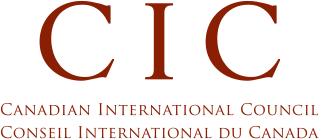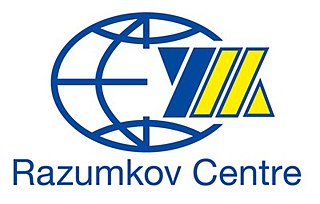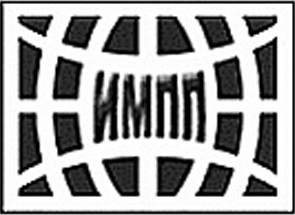A think tank, or policy institute, is a research institute that performs research and advocacy concerning topics such as social policy, political strategy, economics, military, technology, and culture. Most think tanks are non-governmental organizations, but some are semi-autonomous agencies within government or are associated with particular political parties, businesses or the military. Think-tank funding often includes a combination of donations from wealthy individuals and personal contributions, with many also accepting government grants.

The International Institute for Strategic Studies (IISS) is a British research institute in the area of international affairs. Since 1997 its headquarters have been Arundel House in London, England.

The Brookings Institution, often simply called Brookings, is an American research group founded in 1916. Located on Think Tank Row in Washington, D.C., the organization conducts research and education in the social sciences, primarily in economics, metropolitan policy, governance, foreign policy, global economy, and economic development. Its stated mission is to "provide innovative and practical recommendations that advance three broad goals: strengthen American democracy; foster the economic and social welfare, security and opportunity of all Americans; and secure a more open, safe, prosperous, and cooperative international system."

The Centre for Policy Studies (CPS) is a think tank and pressure group in the United Kingdom. Its goal is to promote coherent and practical policies based on its founding principles of: free markets, "small state," low tax, national independence, self determination and responsibility. While being independent, the centre has historical links to the Conservative Party.
The Munk School of Global Affairs and Public Policy at the University of Toronto is an interdisciplinary academic centre with various research and educational programs committed to the field of globalization. It offers master's degrees in Global Affairs, Public Policy, European, Russian, and Asia-Pacific studies. The Munk School is a member of the Association of Professional Schools of International Affairs, a group of schools that educate students in international affairs. Admission to the Munk School is highly competitive.
The CSU-associated Hanns Seidel Foundation is a German party-associated and taxpayer-money funded political research foundation. It was founded in November 1966 after most of the other party-associated foundations in Germany were already established. It is headquartered in Munich. The conference centre in the Banz Abbey is the foundation's main location. It is a member of the Centre for European Studies, the official foundation and think tank of the European People's Party. It is named after the CSU politician Hanns Seidel.

The Barcelona Centre for International Affairs, CIDOB, is a Spanish think tank headquartered in Barcelona, devoted to research in the field of international relations. It defines itself as an "independent institution" that, "based on criteria of excellence and relevance, has as scope of study the analysis of international relations and global issues that affect governance at different levels, from international to local. CIDOB has the "goal of being a useful tool for society and institutions in Europe, Spain, and Catalonia, and their influence on the debates that inform decision-making processes in the political, economic, and social spheres". Likewise, the centre "is committed to innovation, rigor in research, public service, and collaborative work".. Legally speaking, CIDOB is a private foundation endowed with a board of trustees made up of the main public institutions and universities of Barcelona and Catalonia. Both the centre and the foundation are governed by statutes, a code of ethics, and a master plan. At present, CIDOB is the oldest think tank in Spain and one of the most influential in its area, at the European level.
Turkish think tanks are relatively new, but such think tanks provide research and ideas, yet they play less important roles in policy-making when compared with American think tanks. Many of them are sister organizations of a political party or a company. There are very few university think tanks.

The Manohar Parrikar Institute for Defence Studies and Analyses (MP-IDSA), New Delhi, is India's foremost think tank for advanced research in international relations, especially defence, strategic and security issues, and providing training to civilian, military and paramilitary officers of the Indian government. It is funded by the Indian Ministry of Defence but operates as a non-partisan and autonomous body. It aims to promote national and international security by carrying out research on defence and security-related issues and disseminating the knowledge among the policy-makers and wider public.

The Canadian International Council is a Canadian think tank on foreign relations. It is an independent, member-based council established to strengthen Canada's role in international affairs. Its goal is to advance debate on international issues across academic disciplines, policy areas, and economic sectors.

Razumkov Centre, or fully the Ukrainian Centre for Economic and Political Studies named after Olexander Razumkov, is a Ukrainian non-governmental public policy think tank.

Taras Kuzio is a British academic and expert in Ukrainian political, economic and security affairs. In 2010, he predicted the Russian annexation of Crimea that would result from the ousting of President Yanukovych. He has British citizenship, but is based in Toronto, Canada.
The Center for Policy Studies in Ukraine is a non-governmental think tank in Ukraine, headquartered in Lviv. The Center deals with international politics, civil society, NGOs, education, politics, regional policy and legislature; it also conducts conferences and seminars. The Center for Policy Studies was established in 1994 and officially registered in 1997. One of its key objectives is to utilize the creative potential of the graduates and students of social sciences and humanities at Lviv University and other universities in Lviv and the region to promote democratic principles and civil society in Ukraine. The center works to assist the development of a network of teaching staff and innovative educational areas, and to implement activities aimed at developing professional, independent media to document the changing political environment of Ukraine.
Non-profit journalism is the practice of journalism as a non-profit organization instead of a for-profit business. NPJ groups are able to operate and serve the public good without the concern of debt, dividends and the need to make a profit. Just like all non-profit organizations, NPJ outfits depend on private donations and or foundation grants to pay for operational expenses.
Centre for European Studies is the name of several organisations involved in the field of European studies:
The International Centre for Policy Studies (ICPS) is an independent NGO, founded in 1994 which aims to promote public policy concepts and practice and apply them to influential policy research that affects both the public and private sectors in Ukraine.

The Balsillie School of International Affairs (BSIA) is a centre for advanced research and teaching on global governance and international public policy, located in Waterloo, Ontario. As one of the largest social sciences initiatives in Canada, the school is a collaborative partnership between the University of Waterloo, Wilfrid Laurier University, and the Centre for International Governance Innovation. The BSIA is an affiliate member of the Association of Professional Schools of International Affairs, a group of schools that educate leaders in international affairs. The BSIA is housed in the north and west wings of the CIGI Campus. Admission to BSIA is highly selective.
The TJ Ryan Foundation is the only progressive (left-leaning) think tank specifically focussing on Queensland public policy. The idea of the Foundation was announced by Queensland Labor leader Annastacia Palaszczuk on 4 May 2012. In May 2013, Emeritus Professor Roger Scott was appointed inaugural executive director of the TJ Ryan Foundation Board, together with the initial Board members.

The Institute of International Politics and Economics is one of the oldest research institutes in South Eastern Europe specialised in the field of international relations. It is headquartered in Belgrade, Serbia. Since it was established in 1947, the Institute of International Politics and Economics has had a special place in the academic life of the country. From a small group of researchers who laid foundations of the Yugoslav science of international relations, the Institute has gradually turned into the largest scientific institution in the country and one of the most reputable research and Para-diplomatic centres in the world. The Institute studies the processes and phenomena in the field of international politics and economics, this also including legal aspects of international relations, which are of interest for the position and foreign policy of the State.









